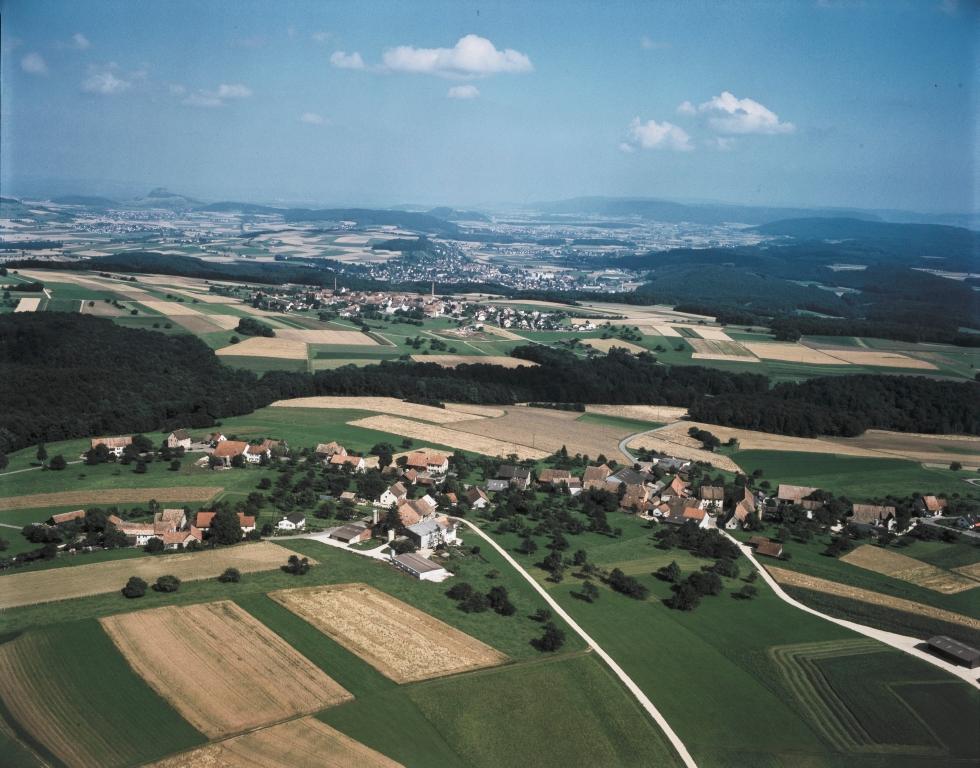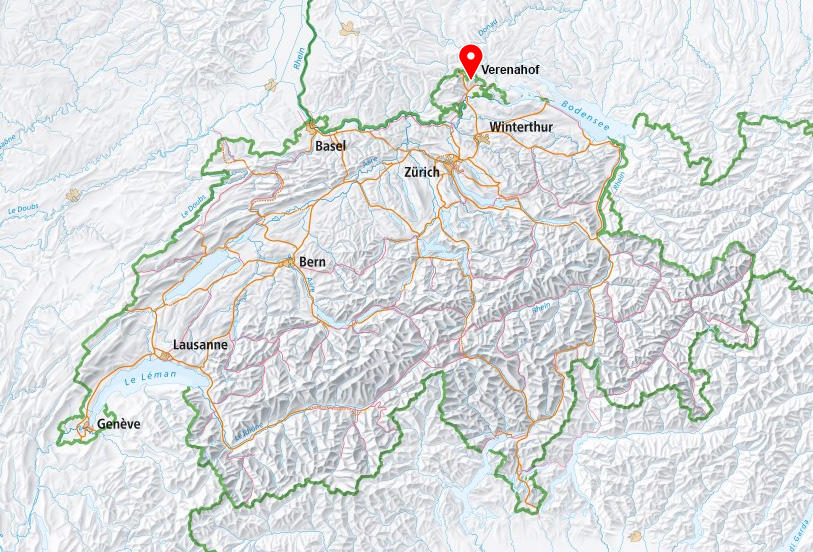
On this day, a German enclave turned Swiss

Can you imagine being a Swiss citizen living abroad in your own village? Confused? This was the case for the residents of the small German enclave of Verenahof in canton Schaffhausen between 1522 and 1967.
On October 4, 1967, the patch of German farmland – which today comprises three houses and fewer than a dozen people – was absorbed into Switzerland as part of a land swap agreement between the two countries.
The riddle started in 1522, when Emperor Charles V and his brother Archduke Ferdinand of Austria purchased Verenahof, the size of 60 football pitches, together with several nearby villages from a German aristocrat. The Emperor insisted that these small territories should not be sold on to the Swiss canton of Schaffhausen, which had already bought its independence from the Habsburgs in 1418 and had become a member of the Swiss Confederation in 1501.
Hiding Nazis
The struggle for ownership continued during the 17th and 18th centuries. The Grand Duchy of Baden, Germany, inherited sovereign rights over Verenahof in 1806 and in the 1920s there were several failed attempts to integrate Verenahof into Switzerland.
Several Nazi officers apparently tried to hide on the farmland at the end of the Second World War but were expelled by the Swiss authorities.


In compliance with the JTI standards
More: SWI swissinfo.ch certified by the Journalism Trust Initiative




























You can find an overview of ongoing debates with our journalists here . Please join us!
If you want to start a conversation about a topic raised in this article or want to report factual errors, email us at english@swissinfo.ch.